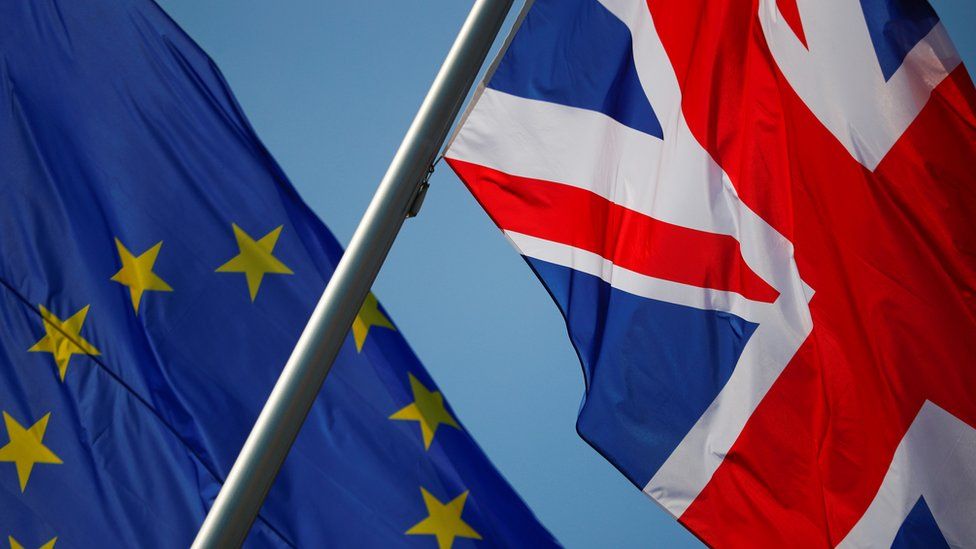Brexit: Serious differences over trade deal, say UK and EU
- Published
- comments

The UK and EU have said serious differences remain over a post-Brexit trade deal, following the latest negotiations in Brussels.
EU negotiator Michel Barnier said the bloc's position needed to be "better understood and respected" by the UK if an agreement is to be found.
Boris Johnson said a "good deal" was possible but it must recognise UK sovereignty in areas such as fishing.
The UK has ruled out extending the December deadline to reach a deal.
The prime minister told LBC Radio he was "more optimistic" than Mr Barnier about the chances of a deal but, if it did not happen, the UK would happily trade with its neighbour on more limited terms similar to Australia.
"I am not remotely disrespectful of Michel or the EU system that I understand deeply," he said.
"But I just don't think that it's right for us to proceed on the basis of the European Court of Justice continuing to arbitrate in the UK or us having to continue to obey EU laws when we are out of the EU."
The latest round of talks, the first to be held in person since the Covid-19 crisis struck, came after both sides agreed to "intensify" negotiations last month.
Negotiations have continued throughout the pandemic via video link. An additional five weeks of in-person talks are planned for July and early August.
BBC Europe reporter Gavin Lee said the latest round of talks had broken up a day early, with a discussion between the two chief negotiators tomorrow cancelled.
Mr Barnier said "serious divergences remain" after the four days of talks, although the EU believed an agreement was still possible.
"The EU engaged constructively, as we had already done during the fourth round of negotiations in June," he added.
"The EU expects, in turn, its positions to be better understood and respected in order to reach an agreement.
"We need an equivalent engagement by the United Kingdom."
Officials play down early finish
Analysis by Gavin Lee, Europe reporter
Talks started in Brussels on Monday and were due to last until tomorrow afternoon, but finished earlier today.
It is understood very little progress was made this week - but discussions in London scheduled for next week will continue as planned.
EU officials told the BBC that "one positive is that the UK now appears to understand our position more clearly on the areas of disagreement".
Officials on both sides were keen to play down the decision to end talks early.
One EU official told the BBC that the planned discussion for this afternoon was for "extra questions to be raised" and that "it wasn't a "huge issue" that the two negotiators wouldn't meet tomorrow.
Mr Barnier underlined that the EU expects "parallel progress" in all areas of the negotiations.
This is a point of difference with the UK - which wants to negotiate separate agreements in areas such as fisheries, alongside a basic free trade deal.
Mr Barnier also reiterated the EU would not agree to a deal without "robust" guarantees on the so-called "level playing field" for competition between business.
He added this would include the area of state support for companies.
Just like when it was an EU member, the UK remains tied to the bloc's "state aid" rules during the 11-month transition period due to end in December 2020.
David Frost (L) is due to take up a role as UK national security adviser in August.
The UK has not yet unveiled plans for its post-Brexit state aid regime, but PM Boris Johnson has previously said he wants to make it easier for the UK government to provide assistance to struggling firms.
The two sides also remain deadlocked over the issue of fishing rights - an area where they had previously pledged to find agreement by last month.
The EU wants to uphold its existing access to British waters for vessels from member states, to avoid economic disruption for their fishermen.
But the UK wants to hold annual talks with the bloc over access to its waters, as it currently does with nations such as Norway.
- Published18 December 2020